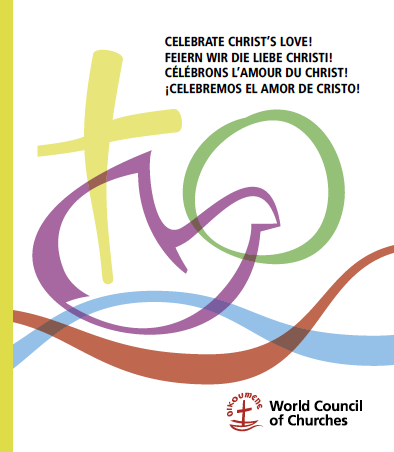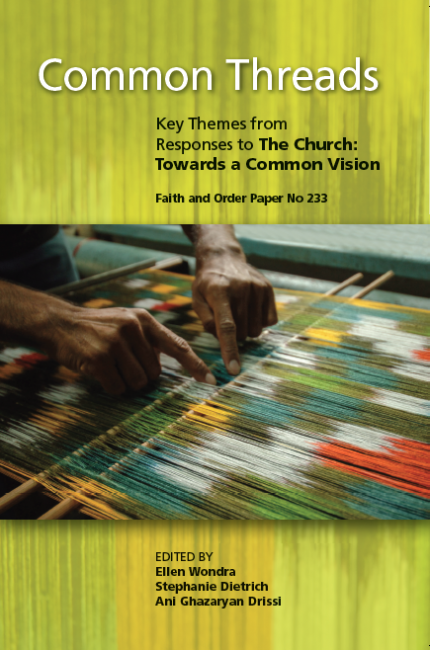Displaying 81 - 100 of 262
Easter Initiative Bible Study: Solidarity Is Sacred
14 March 2022
Easter Initiative Bible Study: Identity Is Sacred
14 March 2022
Easter Initiative Bible Study: Family is Sacred
14 March 2022
Easter Initiative Bible Study: Worship Is Sacred
14 March 2022
Easter Initiative Bible Study: Home Is Sacred
14 March 2022
Pilgrims on the Path of Peace
The Journey of the WCC from Busan to Karlsruhe (Unillustrated)
28 February 2022
Common Threads
Key Themes from Responses to The Church: Towards a Common Vision. Faith and Order Paper No 233
25 February 2022
11th Assembly Bible study - The Exaltation of the Holy Cross
22 December 2021
11th Assembly Bible study - Transfiguration
22 December 2021






